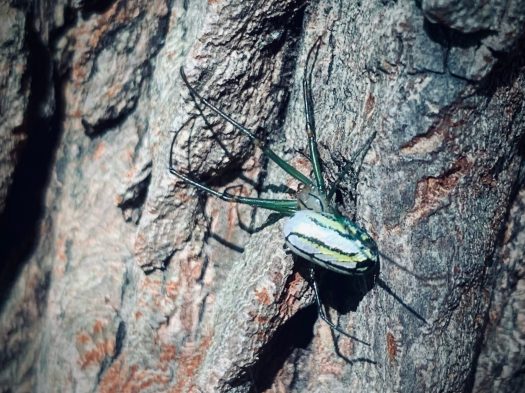So many otherwise competent contemporary poets struggle to write decent haiku, and it’s worth asking why. Part is miseducation, sure: academic workshops seem to be passing on a view of haiku that’s about 30 years out of date, relying on dodgy translations of the pre-modern masters and helping entrench misperceptions already out there in popular culture (morae=syllables, haiku is a poetic form rather than a genre, haiku must be written in three lines, haiku are easy exercises for beginner poets, etc.). There’s very little awareness that an English-language haiku and tanka tradition even exists. Most academic libraries don’t subscribe to haiku journals. And so on.
But observing my own difficulties even after trying to correct for all of that, I think there’s also a larger problem: modern lyric poets are acculturated into a mindset that is somewhat at odds with the mindset required to compose effective haiku. We’re trained to wrap things up for the reader, to be clever, to aspire to the sorts of insights that could be didactically expressed if need be. We’re better at talking than we are at listening, despite lip service to Pound’s dictum “show, don’t tell,” and many have only the most superficial knowledge of the natural world (to the extent that that’s still central to modern haiku). We’re also trained to look for metaphor and simile—not typically an overt feature of haiku—and to favor in our imagery what Bakhtin called the classical body over the vernacular body, which I think militates agains the kind of earthy realignment between self and other proposed by the best haiku.
Then there’s the problem of how we think of ourselves as writers, strongly favoring the Romantic ideal of a lone creator rather than a collaborator or better yet a participant in creative, game-like exchanges. It’s no wonder that modern haiku culture tends to attract experimental rather than mainstream academic poets.
***
The other day I said something about not being into haiku as a lifestyle. But I don’t know, giving up coffee for green tea and going on long walks whenever possible seems about as haiku-lifestylish as one can get. Maybe what I meant was I’m a loner. That might be true. And as I just alluded to, haiku composition is a fundamentally social art-form. That’s one reason why competitions proliferate, for the festivity and sociability of it. Group composition exercises and similar get-togethers were, and I think still are, at the heart of haiku school formation and publication culture in Japan, and I gather they’re also pretty important in the US, the UK and elsewhere. It’s not unusual for the editors of haiku journals to propose edits even to very well-established writers; the focus is on the haiku rather than the writer, which I quite like.
***
This morning was actually kind of pleasant for walking. The really crushing humidity didn’t come until mid-afternoon.


discovering
another pants pocket…
the sun goes in


vireo nestlings
yellow beaks open wide
for my shadow



***
The true bards of this era are the advertising jingle writers and political sloganeers. They are the ones whose words infiltrate our dreams and shape our sense of the possible.
*
Thinking about how millennials made, like, a half-turn away from irony. They’re LARPing as sincere people.
(“Is that true, or did you just make it up?” I’m a poet. Take everything I say with that in mind.)



Dave, I appreciate your thoughts here. Sometimes i wonder if poetry is one thing and haiku something else – the worlds seem so separate. Also, thank you for reminding me that i might need more haiku in my present lifestyle.
“the kind of earthy realignment between self and other proposed by the best haiku.” for me, this begins to get at the crux of the matter. the self, other and nature all being constructed entities rather than projections of platonic ideals.
I enjoyed reading this having had conversations with my poetic partner about exactly these issues.